How US police training compares with the rest of the world
- Published
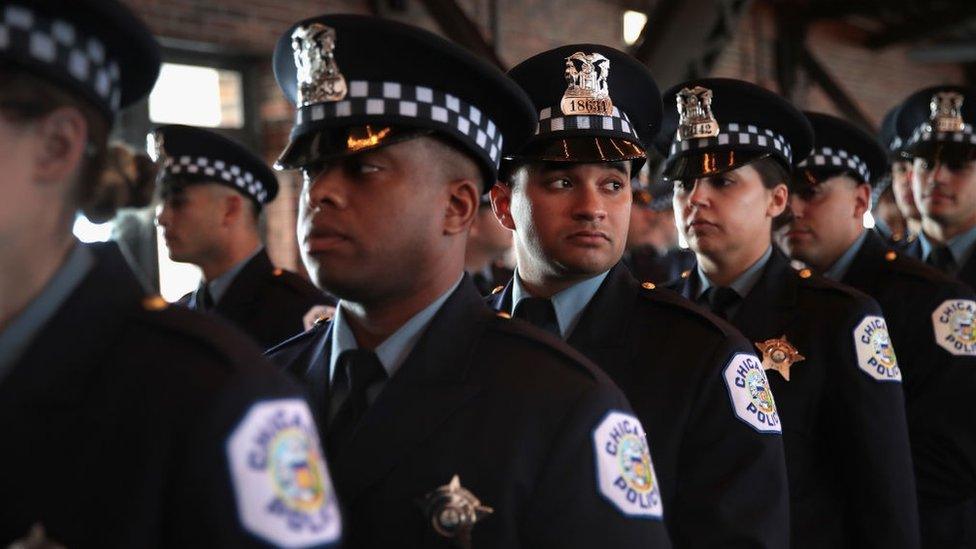
More people are killed by police in the US than in any other developed country, and there are growing calls for improved training to reduce the use of lethal force.
We've looked into what training US police officers receive, and how it compares with other parts of the world.
How many people are killed by police?
About 1,000 people a year are killed by police officers in the US, according to an independent project that tracks police violence, external. Most are shot dead.
The majority of the world's police forces carry firearms, but no developed nation uses them against their citizens as often as officers in the US - and disproportionately against African-Americans, compared with the percentage of the population they represent.
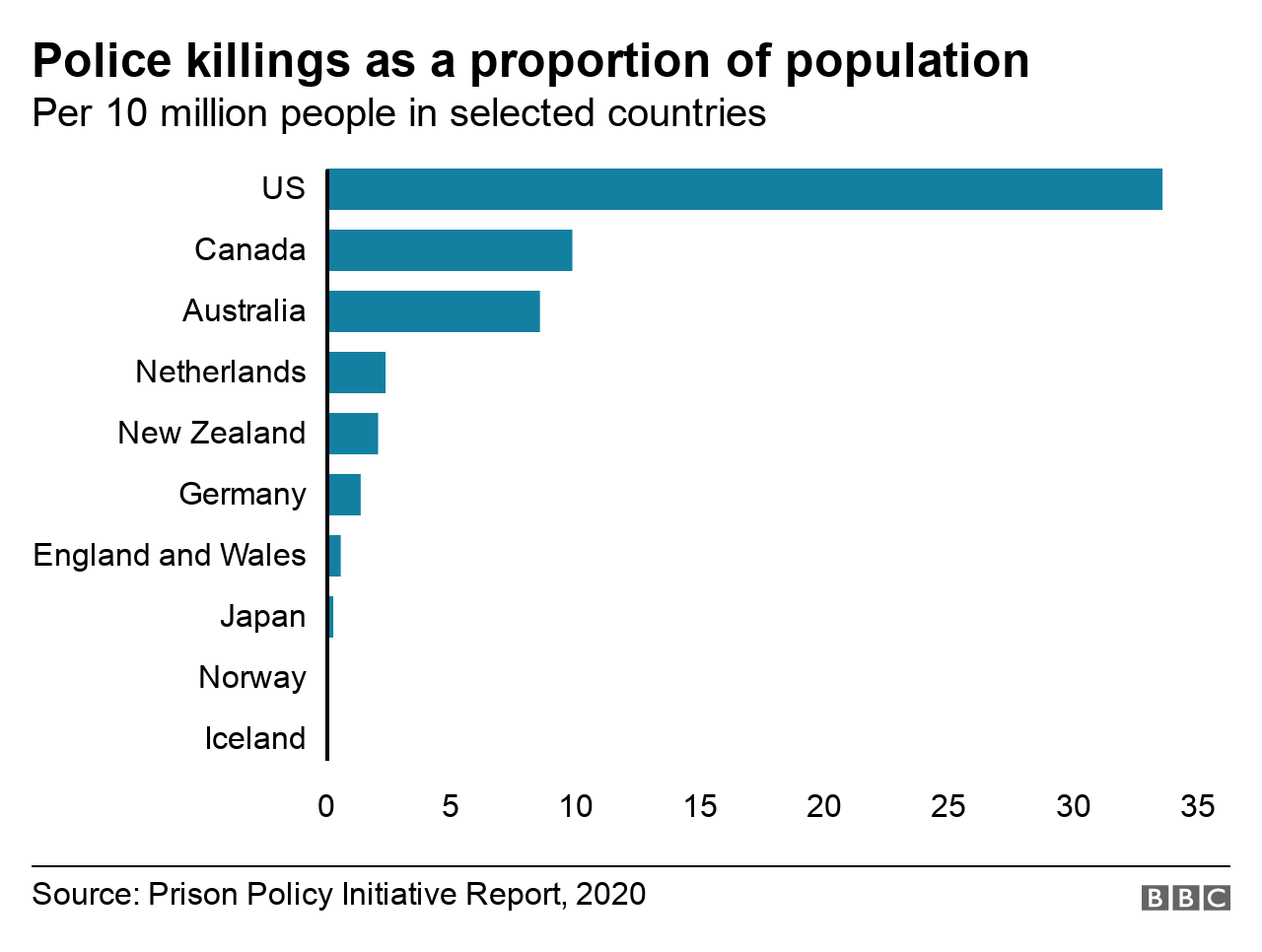
Part of this is to do with gun culture - the US is home to around half of the world's civilian-held firearms, external.
In 2020, fewer than 10% of people killed by police were recorded as unarmed, external.
Rashawn Ray, professor of sociology at the University of Maryland, says: "In most states people can carry guns either on their body or in their vehicles, so that escalates things for police - they instantly perceive that anyone can be a threat."
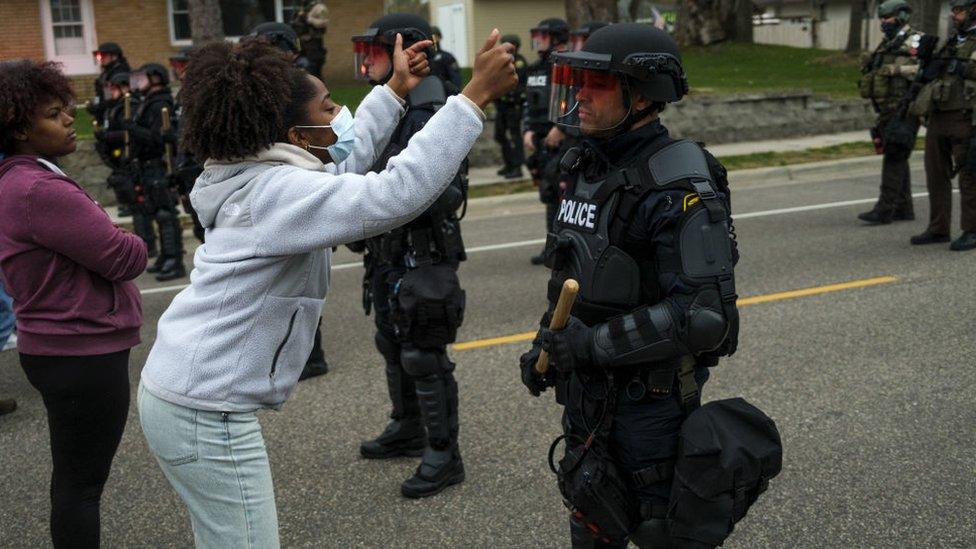
US police are given far more training on use of firearms than on de-escalating provocative situations, say researchers
In the same year, officers killed more than 20 times as many civilians - and some argue the use of force is disproportionate to the threat, with better training needed to de-escalate situations.
Prof Ray says: "Nine out of 10 calls for law enforcement have nothing to do with violence at all, and while they definitely encounter violent situations that could escalate, often... it's police officers who are escalating the situation."
How long does police training take?
There are around 18,000 police agencies in the US, but with no national standards on training, procedures and timescales vary across the country.
On average, US officers spend around 21 weeks training, external before they are qualified to go on patrol.
That is far less than in most other developed countries, according to a report by the Institute for Criminal Justice Training Reform (ICJTR), external.
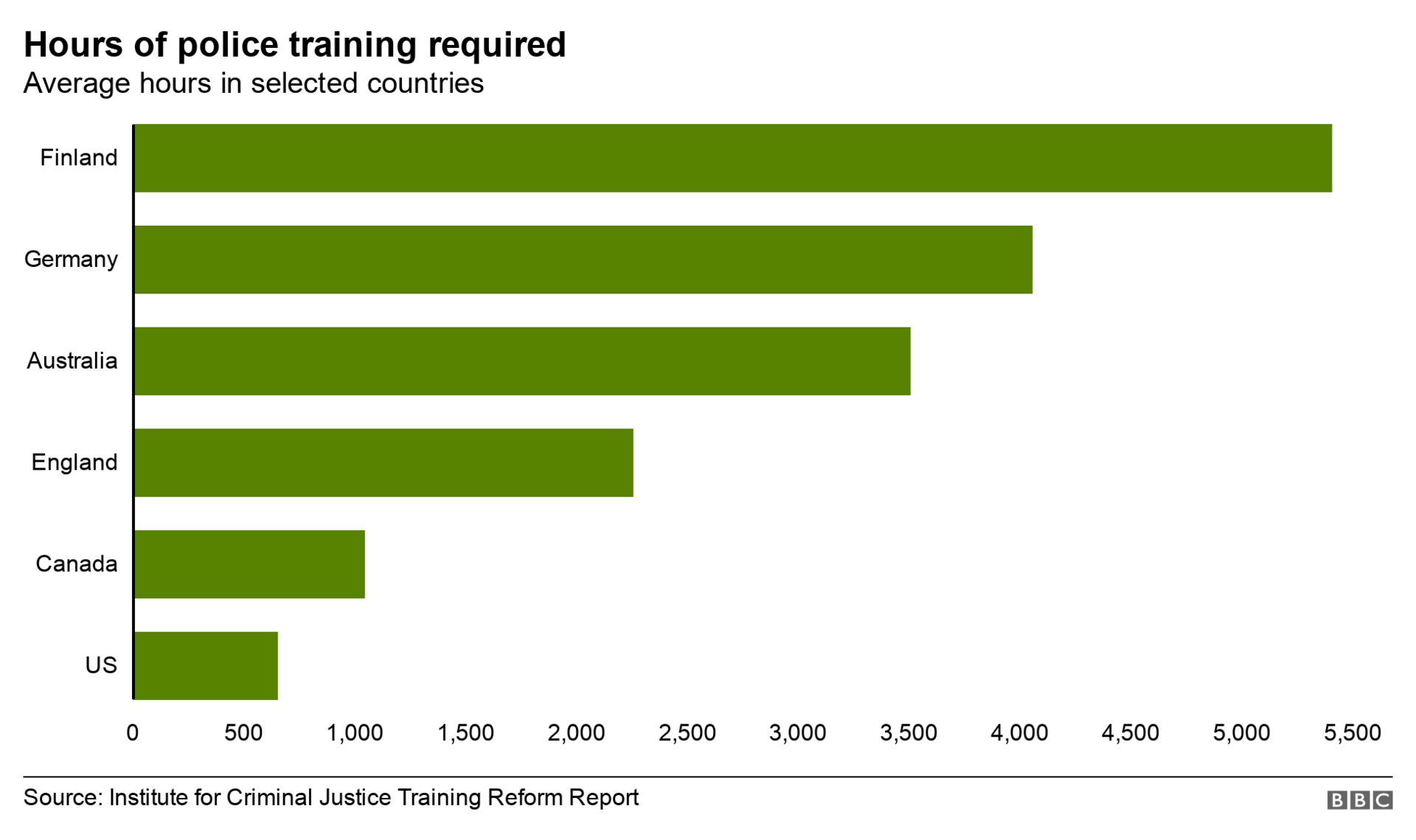
The report looked at police training requirements in more than 100 countries and found that the US had among the lowest, in terms of average hours required.
Also, many other countries require officers to have a university degree - or equivalent - before joining the police, but in the US most forces just require the equivalent of a high-school diploma.
In England and Wales, it has recently become mandatory for officers to have an academic degree.
Maria Haberfeld, professor of police science at the John Jay College of Criminal Justice, says: "Some police forces in Europe have police university, where training lasts for three years - for me the standouts are Norway and Finland."
Finland has one the highest gun-ownership rates in Europe, with around 32 civilian firearms per 100 people, external - but incidents of police shooting civilians are extremely rare.
What type of training do police get?
US police academies spend far more time on firearms training than on de-escalating a situation - 71 hours against 21, on average, according to a 2013 US Bureau of Justice Statistics report., external
And in the US, the escalation of force is at the discretion of the officer, whereas in countries such as Norway and Finland, there are more rigorous rules as to what is considered justified use of force.
Prof Haberfeld says: "Most of the training in the US is focused on various types of use of force, primarily the various types of physical force. The communication skills are largely ignored by most police academies.
"This is why you see officers very rapidly escalating from initial communication to the actual physical use of force, because this is how they train."
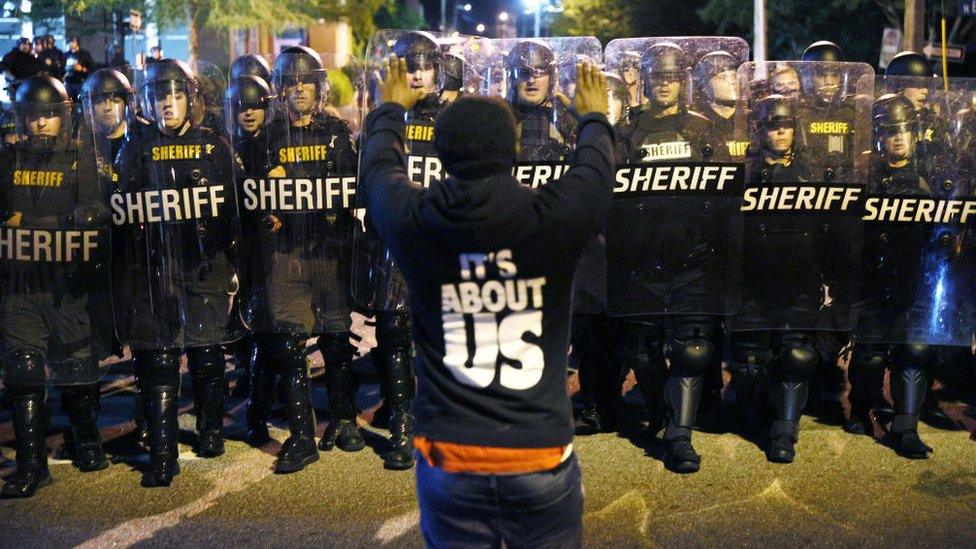
US police officers are more likely to kill themselves than be killed, according to the ICJTR
ICJTR executive director Randy Shrewsberry says more emphasis also needs to be put on mental-health training - both for when officers are responding to suspects and for officers themselves.
"Police officers are up to five times more likely to kill themselves than to be killed by homicide," he said. "We'd like to see a greater emphasis on police officer mental-health training. Currently, they only get a few hours of training - if any - on self-care."
The US spends almost 1% of its GDP on policing - and some activists are calling for this to be cut and directed to other services.
But Mr Shrewsberry says: "Unfortunately, when we look at defunding or budget cutbacks, training divisions are often the earliest to be hit."

